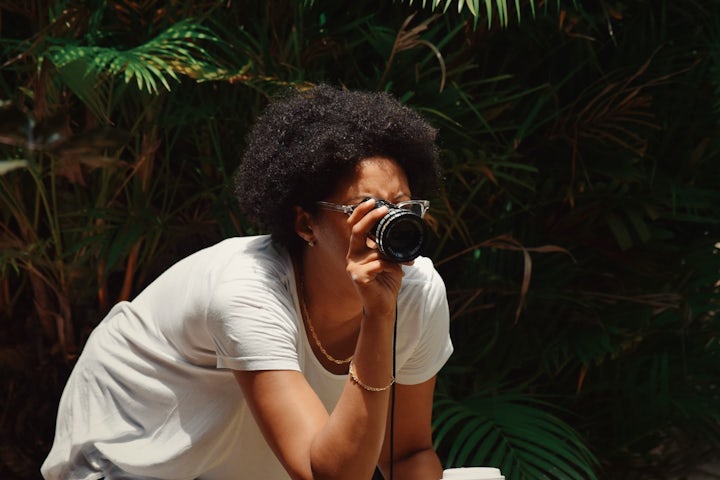
Director Danae Grandison on pitching, community, and finding her place in film.
Interviews • 4min read
Interviews • Written by Ellie Cameron-Krepp & Maggie Joyner
‘Oasis’ took out first place in Nespresso Talents 2020, an annual vertical short film competition inviting creators around the world to submit 2-3 minute short films around a set theme. Selected by the jury from over 700 submissions across 47 countries, Faride’s short film explored the ‘Virtuous Circles’ theme in a highly intimate way – a unique portrait of new life in 2020.
We spoke to Faride to find out more about creating ‘Oasis’ and her passion and drive to tell untold stories through film. Watch the full film and a short spotlight on Faride, and read our interview below.
'Oasis'
Meet Faride Schroeder
For a few years now I’ve been deeply exploring different female topics, as a woman of this generation, as a daughter, as feminist and as a filmmaker. One of them is the possibility of being a mother (or not), especially in a world that is falling to pieces. I’m even writing a fiction script about that, so Oasis wasn’t just a random interesting topic from the pandemic. I think this period made us go deep inside ourselves and triggered the most honest creative processes in us, then forced us to make them true in the most intimate way.
I felt I needed different images, some that would give us hope, that remind us we’re still alive.
It all started when I was locked down with my mother in my apartment in Mexico City, after more than a decade not living with her. I felt my apartment was like a womb, that separated us from the pandemic but got us closer to each other. The media were bombing us with images about death and poverty and I was upset, I felt I needed different images, some that would give us hope, that remind us we’re still alive. When I had life happening just in front of my eyes in such a conclusive way, I couldn’t help but recover the hope.
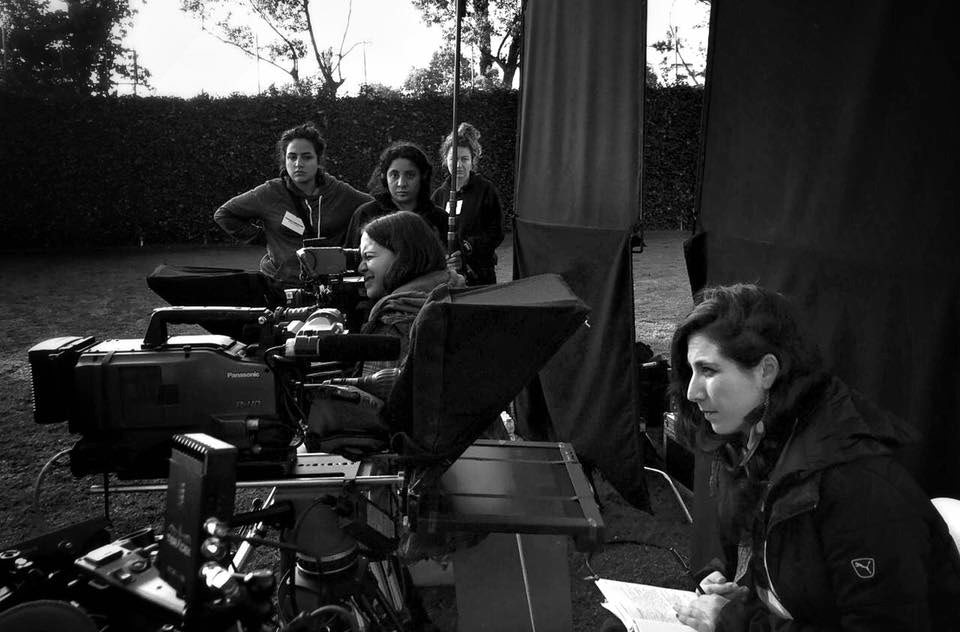
Since I was little I’ve been very visual and I’ve always been interested in creativity and movement. I used to be a dancer growing up. When I was 14 years old, people from the film commission in my province saw me on the street and they asked me if I wanted to be an extra on a Hollywood film starring Antonio Banderas and Angelina Jolie that was being shot in Mexico. I was curious about how the films were made and I said yes! To see the whole crew (including Mexican Rodrigo Prieto, the DOP) working, lighting, blocking and shooting the scenes was an incredible experience to me.
I decided to study Communication and Film instead of Dance, and I worked on a short film for the first time. It was a London Film School final project by a Mexican director. Just imagine the experience: a young talented international crew shooting in 35mm on an island of dunes in Mexico as the location! Surrealistic. I fell in love with filmmaking.
Of course reality has changed a lot and filmmaking Covid protocols are very challenging now if you are shooting with a full crew, but I have to say that while shooting this very intimate short film, there wasn’t a huge difference on my way to approach it. I was alone shooting with my camera and that’s it. I wouldn’t bring a film crew with me to the home births anyway, because it would be invasive for the mothers labor.
The pandemic was happening outside, but inside the houses there was an atmosphere of confidence, love and humanized decisions; you could see the smiles of the people and that’s very important in a moment like that. There was some magic in sharing that life changing experience together the same day we met, we became very very close just in a few hours.
The pandemic was happening outside, but inside the houses there was an atmosphere of confidence, love and humanized decisions; you could see the smiles of the people and that’s very important in a moment like that.
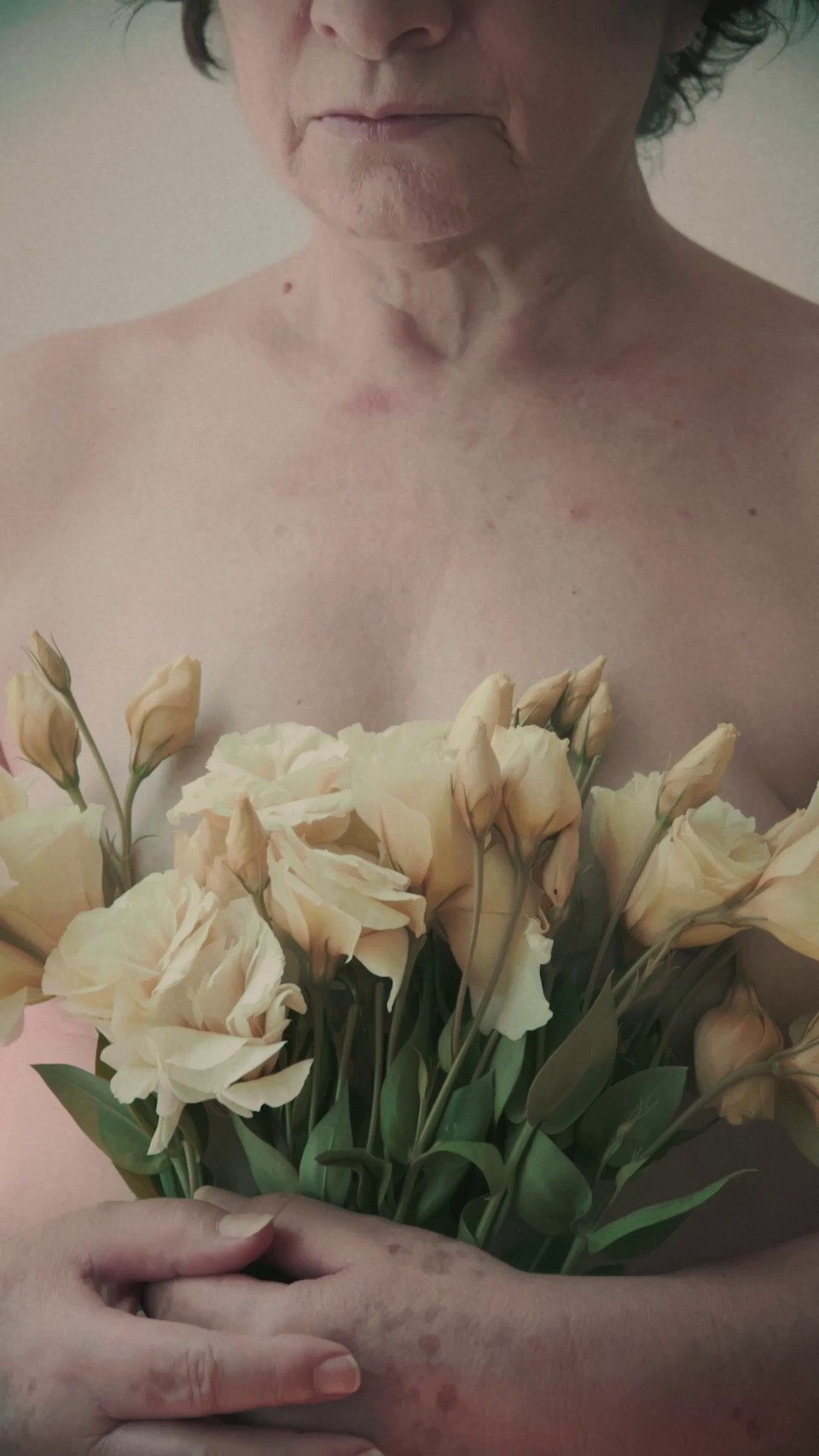
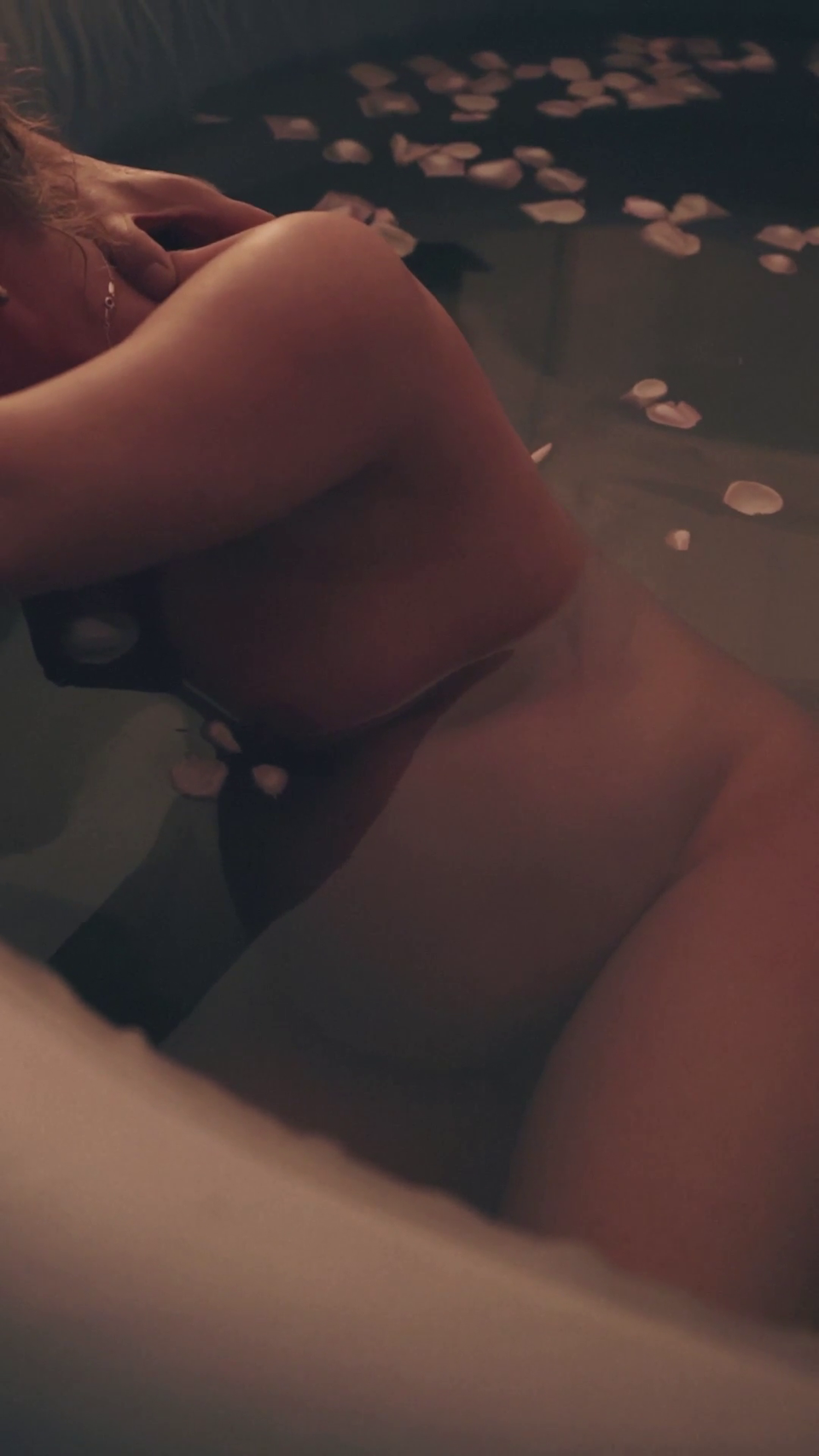
I see these women not as my film subjects, but as my life teachers. The first time we looked into each other’s eyes, my camera was rolling and they were in labor already. We connected immediately as women, without words, I became part of the tribe, they let me in to their loving oases to be a witness of life that prevails despite everything. I was there with my camera but with complete respect and empathy for their process that was the most important thing, above my film. I knew that I wasn’t there to control the filmmaking but to be present in the moment. They even say that they didn’t feel the camera, that they just felt my loving energy with them. That’s beautiful to hear for a filmmaker.
I really think that meaningful and personal stories are indispensable in cinema and any art ecosystem. That is what each one of us knows the most, what is more intimate to us, what we can tell in the most honest way. The most valuable thing a filmmaker has is her/his/their own gaze and each one of us has a unique point of view experiencing and approaching life, so we better be brave and use that to tell stories. I really like unique films, films that reflect people, that question paradigms, that wonder, that make us feel we are not alone, that inspire and start a fire in someone else, that start a fire in you as you shoot it.
The most valuable thing a filmmaker has is her/his/their own gaze and each one of us has a unique point of view experiencing and approaching life, so we better be brave and use that to tell stories.
There’s a funny story here. My producers called me and told me that Nespresso Talents was closing in 3 weeks, and I said yes, let’s do it! We had to hurry up. I wrote another fiction magical-realism script about Virtuous Circles. When I told them the idea they loved it but, we stayed at home wondering how to shoot it in this Covid context.
I remembered that few weeks before I wrote “Home births during the pandemic”, and I circled it. I felt an intuition and I followed it. I called my gynaecologist who told me that three of her patients were about to start labour at any moment, “so be ready”. I took my camera and went to shoot the first birth. I started shooting horizontally not knowing that this was the Nespresso film, but when I was there, completely impressed by what I was witnessing, I realized that THAT was the most essential virtuous circle of all: Life. So I turned my camera vertically and kept shooting.
I started shooting horizontally not knowing that this was the Nespresso film, but when I was there, completely impressed by what I was witnessing, I realized that THAT was the most essential virtuous circle of all: Life. So I turned my camera vertically and kept shooting.
When I came back with the surprise footage my producers were mesmerized, I wrote the script during a whole night, then started filming my mom vertically in my apartment. I must admit that I started embracing vertical format and modifying my visual paradigms through social media. I knew that it was the perfect time to make an inspiring vertical film: the theaters were closed and many people were confined, feeling hopeless as I did, and watching content on their mobiles. Martha Poly, the editor, is an artist and she approached the vertical format very naturally. We had a great time working together at the distance, playing with the format and it’s storytelling possibilities.
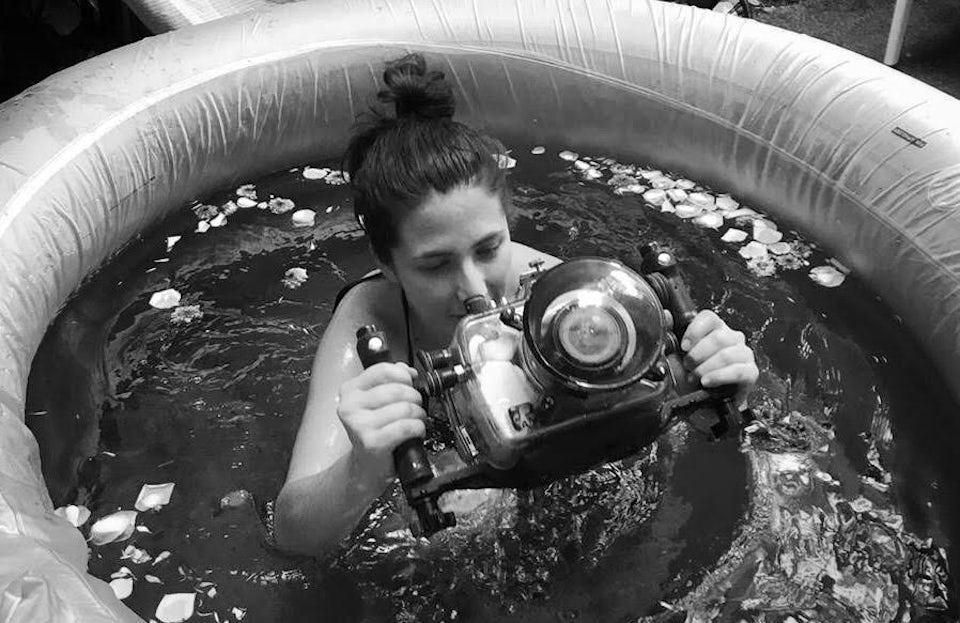
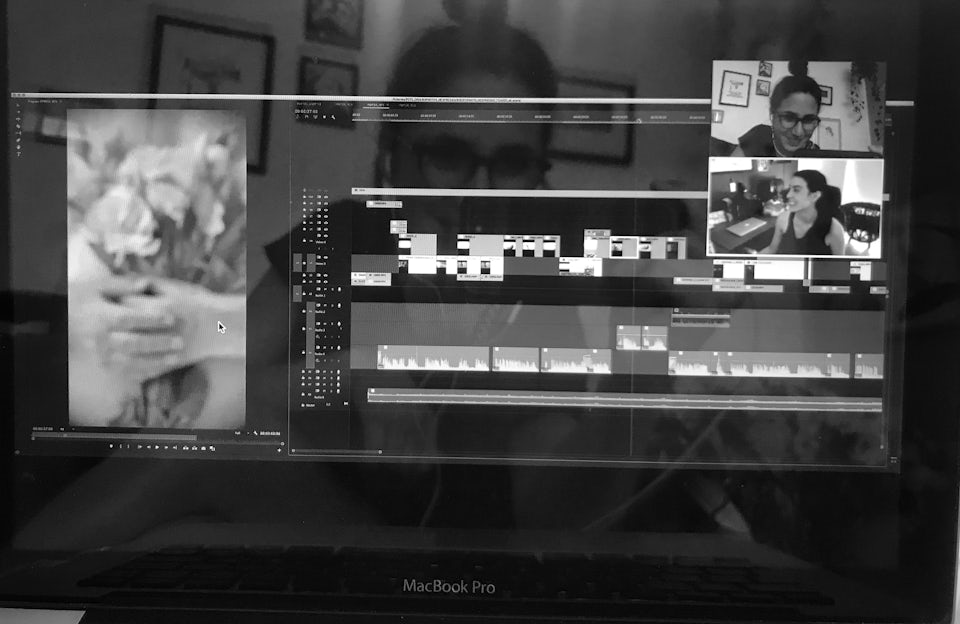
I’m a very sensitive person and I like it, I use that as a tool to create. Life is the great fountain of inspiration and the good news is that we are all in it. I draw inspiration from everywhere.
Many times I start my creative process thinking what I would like to say? What is relevant to say that I really believe in? Sometimes it starts with an image that somehow I created in my mind, some other times it starts writing and getting to know my characters and once I know them well I discover they have a story, some other times I just say yes and flow with what Life is proposing me in that moment. But I’m not into very specific references, I really like my subconscious to do it’s thing, how it mixes all these and if I’m lucky, finds surprising connections and unusual ways.
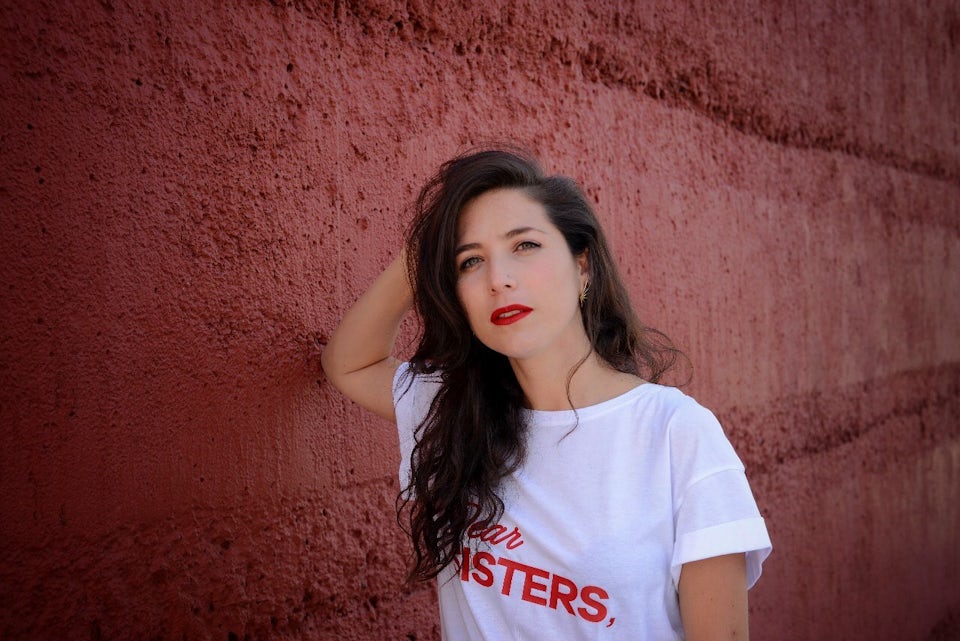
I’ve always had the impulse to create a positive impact on society through my work. I started wondering what is my work giving to the world? What are the messages we are spreading in the name of making a living? So when I started directing in advertising, I decided to look for projects that had more conscious messages, many of them about female topics, characters and narratives.
In that same period as the Free The Work ambassadorship, I met my Dear Sisters, and started sharing that purpose with them, feeling their sorority and co-founding our female content collective. Now I dedicate most of my time and work to get a better representation of women in media, to look for equality and better opportunities for underrepresented creators. I work with crews full of talented women because I believe that if there are more female gazes behind the camera, the representation of women will be more fair and eventually that will permeate in the society.
To develop and nourish your own gaze. The world needs to hear your stories and you have to tell them in your own way. To read, to draw, to watch films and reflect on them but especially, to feel, to live, to have experiences and to connect with what moves you and to shoot it. One little film after the other. They will improve each time.
And to trust in your own voice. To know that you have a very unique way to see the world that needs to be represented, that there’s people like you waiting to be inspired by you. There’s a whole system against underrepresented voices, it won’t be easy, but have faith, the world is changing little by little and we count on you and your work to make it happen.
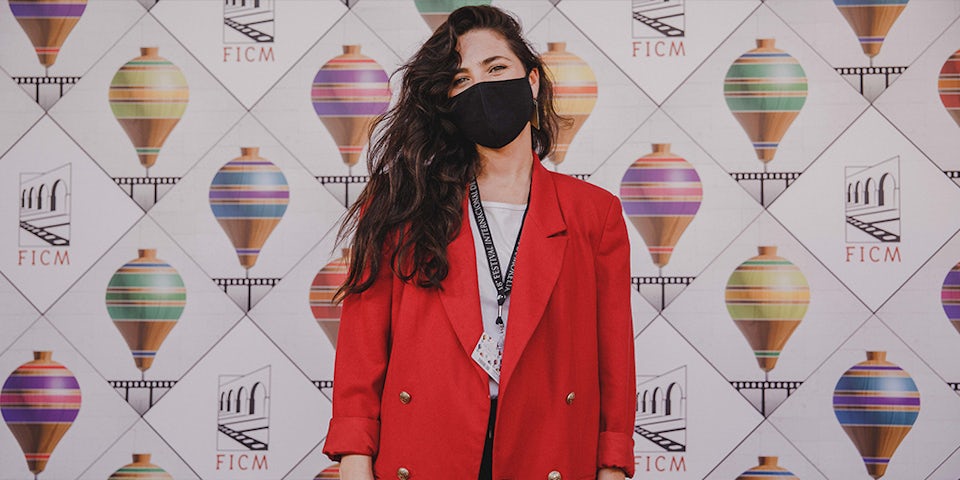
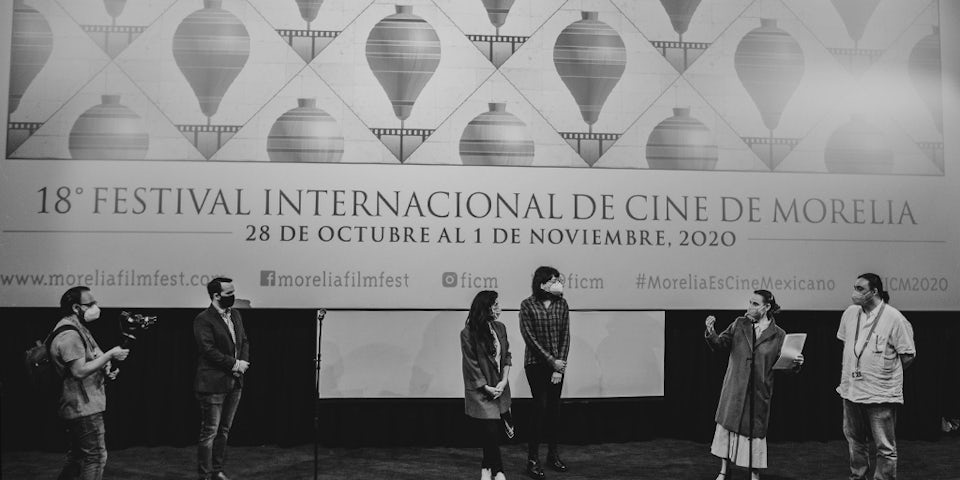
It’s crazy that a little film that came directly from my intuition, that I just took my camera and shot it by myself, then finished it in three weeks with the support of a handful of friends, submitted it 20 minutes before the competition was closed; ended up winning. That was a very fortunate launch pad and I feel very grateful and blessed.
All the media interviews, the invitations to film festivals, the awards, the Semaine de la Critique and Nespresso Talents screening at Morelia Film Festival, etc. have been very exciting and motivating because it represents opening new doors for Oasis to be seen by more people and new opportunities for me to continue making films.
Simultaneously, I’m so touched by the lovely comments from people being inspired, recovering their hope, crying after watching it. Mothers, but non mothers as well, all genders, all ages, from different countries. People are very generous, they take the time to write to you, to congratulate you, to send you love and nice wishes even if they don’t know you. That’s very moving, it gives you an extra reason to believe in yourself and your films.
I think these kind of initiatives through digital platforms help democratize film, to make it more reachable for people outside the closed traditional spheres, and it can be a great opportunity for creators all over the world to show their gaze, to get their work visible to wide audiences and relevant people in the industry globally.
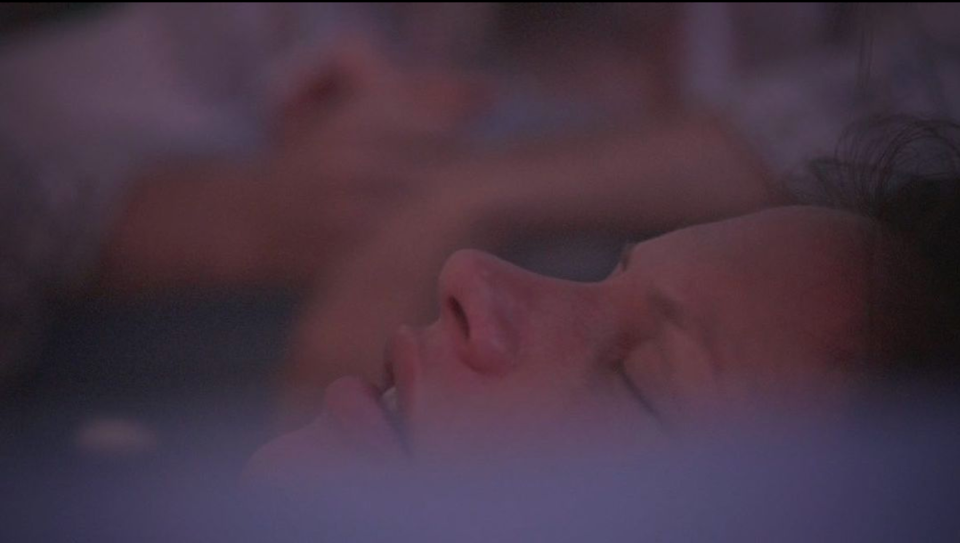
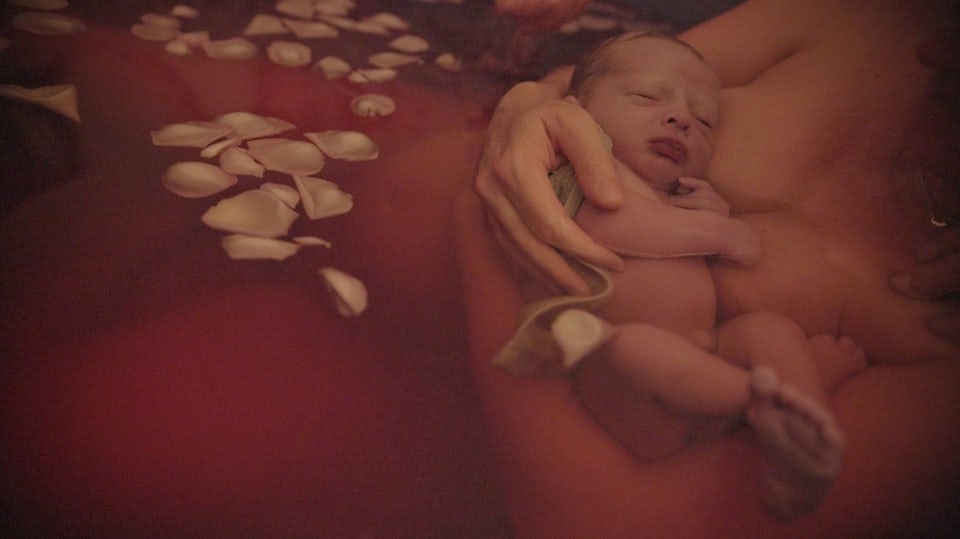
I’m working on ‘Oasis’, the feature film! Since the beginning, when I started shooting I knew I was diving into a very deep and vast universe that needed to be told in a longer format. We have some co-producers already and we are developing and shooting it as we speak. In the meanwhile I’m writing a female gaze, dystopian, fiction feature film and working on advertising and branded content jobs, all of them with a diversity, inclusion and gender perspective.
Find a personal way to approach the topic, a way that really resonates in you, a unique way. An honest and intimate film will find an audience that really connects with it and that’s why film and art exists. If you are a filmmaker and hesitate to use the vertical format, try to break paradigms, to explore and to be flexible. A new way to see things is always good for filmmaking.
Play with the narrative possibilities of the vertical format, think what if we juxtapose this and that image? What if we shoot it differently? And after prioritizing the essence of your film, make your craft as cinematic as possible, it doesn’t matter if you are making it just by yourself and you have zero infrastructure, open your sensitivity to the film language and use it following your intuition.

Interviews • 4min read
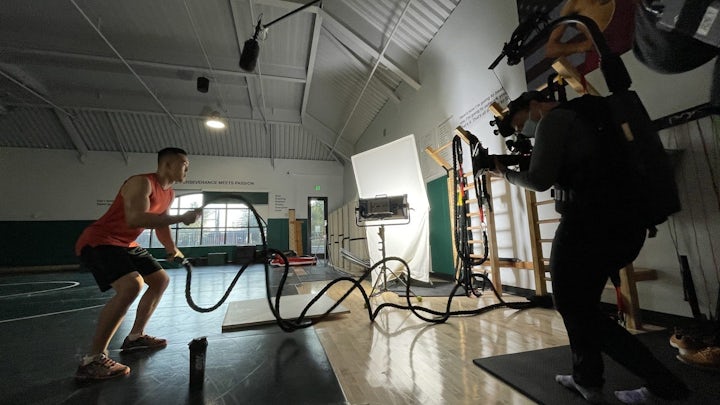
Interviews • 4min read